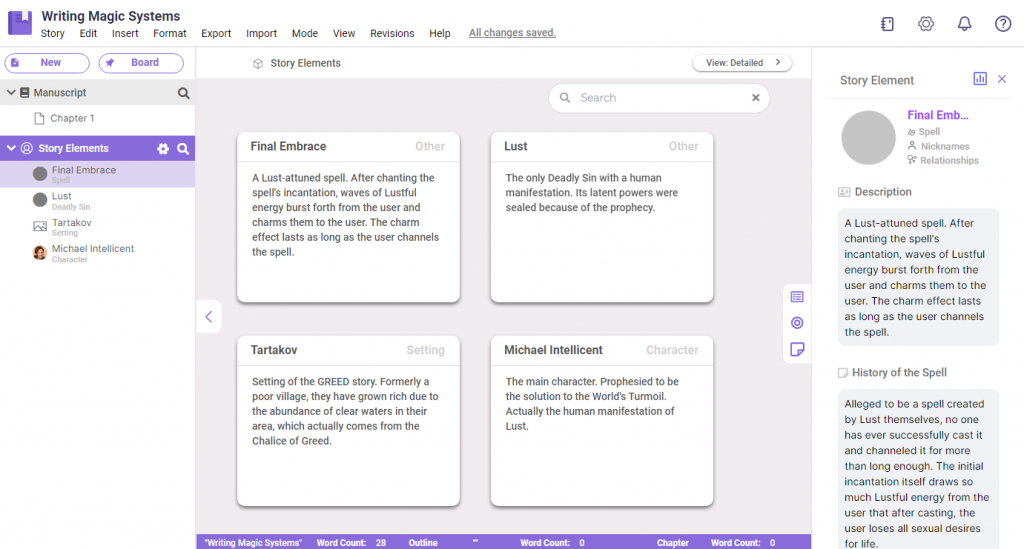Tips on How to Write Magic Systems

In a world that does not exist in reality, anything can happen. Pigs can fly, the sun rises in the west, and humans can be anywhere they want to be at once. However, in that obviously chaotic world of limitless possibilities, profound stories that would be loved by generations of readers can’t bloom.
For a fantasy story to be successful, the plot is half of the fun and the charm. The fantasy part is the other half, and the whole reason why the genre is flocked by readers. The arcane and esoteric fascinate us, yet we need to understand it in a sense, despite it not ever making sense in our real world.

To craft a magical system that is both captivating and understandable, there are a few tips that you, a fantasy writer, might need to know. Whether it is placing limits on power levels or determining the distribution of magical capabilities, this article will tell you how to write magic systems that will make readers wish for it to exist!
Magic Systems
Magic is an amazing concept, where things that cannot absolutely happen in real life can actually occur. Whether through telepathy or wielding magical artifacts, magic systems are what makes fantasy worlds different from the world we live in.

A magic system refers to the mechanisms involved in magic, may it be the extent and methods of casting magic. Magic systems allow for your magic to remain consistent throughout the story, making sure that nothing feels contrived or forced, when seen in the plot perspective.
Magic systems are crucial to the plot of fantasy stories, as they can provide both the source of conflict and means to resolve it in these types of novels. Writing magic systems is part of developing the plot, and for architect-writers, it is an entirely different exercise altogether.
The following tips will help you devise a system of magic that makes sense, and makes for a great story!
Tips on Writing Magic Systems
Follow Sanderson’s First Law of Magic
Brandon Sanderson, a well-known fantasy author, posited three laws that all magic systems must follow for it to be successful. The first of them is as follows: “an author’s ability to solve conflict with magic is directly proportional to how well the reader understands said magic.”
In other words, the more information you share about the utility and power of your world’s magic, the more reliably you can use it to solve conflicts in the story.
In fantasy, magic often serves any or both of two purposes, plot-wise: to create conflict and/or the means to resolve it. The former is always the case, where the big bad villain employs malevolent magic that endangers the world, or to some specific constraint. However, the latter may not always be the case, and this will vary depending on the magic being used.
Hard Magic Systems and Soft Magic Systems
Sanderson’s first law of magic often includes in its discussion the distinction or spectrum of hard magic versus soft magic. Hard magic is magic that is methodically explained, with specific delineated rules. The story takes time in explaining the mechanics of employing various forms of magic, and these rules are consistently followed throughout the work.
On the other hand, soft magic refers to magic that is almost never explained. The effects of soft magic are often unexpected, and readers do not fully know the capabilities of magic; what it can’t and can do. This leaves a feeling of wonder and apprehension, as the power that is being wielded is largely unknown.
Sanderson notes that soft magic is often employed to create conflict, while hard magic can be used to resolve it. The uncertain nature of the impending doom and danger in soft magic lends itself to be great catalysts for conflicts, as the character progresses to fight against this unknown force.
Hard magic, on the other hand, is a great way of resolving story conflicts, as the reader understands its mechanisms clearly. Hard magic works very well like this because we know for it to be largely limited, and oftentimes we see the progression of power to the point that the characters can at least contend with even unknown magic.

Sanderson’s first law of magic ensures that magic, despite being fantastical and otherworldly to us, does not break the basic rules of storytelling.
Add Limitations and Weaknesses
Less known as Sanderson’s second law of magic, always integrate limitations on the magic system and weaknesses on the magic users. An incredibly powerful magic system capable of manipulating nearly everything in the known universe may make for a great power fantasy, but often not for a good fantasy novel.
In Sanderson’s second law, he differentiates three main points: limitations, weaknesses, and costs. Limitations are things that the magic system simply cannot do, while weaknesses are things that either make the magic ineffective or the user vulnerable. Costs, which will be discussed later, are requirements to perform the magic itself.
In storytelling, limitations are more interesting than the capabilities of magic because they provide avenues where stories can exist. Limitations and weaknesses create struggles for the main character, and overcoming these often make for far more captivating narratives.
Limitations and weaknesses should be present in every magic system. In hard magic, this should be established at the onset, as it should be part of the learning curve in the system.
For soft magic, limitations are important for another good reason: a villain may have strength and power that we do not know, but at least we know that at the precipice of magic itself, they are not an undefeatable foe. Where limitations create points of struggle, it also ensures that there is a good reason to pursue the resolution of conflict.
Now for more tangible tips…
Understand the Source or Cost of Magic
An important consideration in writing magic systems is to know the source of magic in the world. This can also be thought of as the cost of casting and using magic. Magic, as often an arcane force, requires energy to be performed, and this energy can come from the user or from other external sources.
Although delineating the source of magic can seem to be more of a hard magic thing, soft magic still needs to work with the entire framework of magic in the world. The idea of understanding the source of magic is to give a baseline of the power and influence of magic. We may never fully comprehend or gauge the capabilities of soft magic users, but understanding the core of magics gives us an idea of their strength.

An example of magic requiring something from the user itself is the magic in J.K. Rowling’s Harry Potter series. Although a wand is required to properly cast spells, the innate ability to use magic is something one must be born with. The only requirement to cast new spells is to know and perform the correct incantations.
An example of magic coming from external sources is the magic system in Brandon Sanderson’s Stormlight Archive series. In the series, magic, or Stormlight, is stored inside gemstones, and this Stormlight is used to fuel the magical abilities of the user.
Determine the Users of Magic
Slotting easily from the previous tip is determining the users of magic. By getting a rough idea about the source of magic, we can then draw upon the question of who gets to wield it. Knowing who can use magic is important as it has implications on the design of the fictional world.
There’s three options for the eligibility of magic: everyone can, no one can, or only some can.
If everyone is able to wield magic, this can go either of two ways: invoke a world where different types of magic are pursued for specialization or imply separate societies where magical affinities differ. This often lends itself to a hard magic system, where magic is scrutinized and studied, although the differing communities can become largely soft.
In a world where no one can actually wield magic, it may be tough to implement, so your other option would be to have only a few people being able to use magic. This is also the most common arrangement. Choosing this group of magic-wielding characters can imply a large part of your story’s setting. It can also be the other way around, where your story’s setting and context may inform the way these people are chosen.
Be Consistent with your World
The entire point of delineating your magic system is for you to determine the “natural” laws of the fictional world that you created. Since magic is often an integral part to the community of your world (at least plot-wise), jarring inconsistencies do not only affect the power dynamics established in the setting, but also the entire design of your world.
In another sense, consistency can also mean the themes that would emerge from the nature of your magic system. These themes often emerge easily by grouping similar magicks and finding properties where they are the same. Finding these interconnections can help your magic system feel more cohesive and logical.
To help you keep track of consistency throughout your story, LivingWriter offers the best tool for it. Story Elements allows you to store notes on characters, settings, and even magic systems. You can easily write exhaustive notes on spells, its source, limitations, and eligible users, and have them all be in one place.

Another amazing thing with Story Elements is that you can easily access these notes right on the manuscript. Simply mention the name of the Story Element, and you can pull up all your notes on the sidebar. There’s no missing out on the details and intricacies of your magic system when they’re stored right in LivingWriter!
Write Amazing Magic Systems with LivingWriter
At the end of the day, magic systems are merely tools that the author utilizes. Great magic systems will not be able to save a failing plot, but a good story can become amazing with the right kind of magic. Magic systems are also oftentimes the reason why many readers would love to stay in a fictional world, so a well-written magic system may make or break your reader’s affection for your imagined world.
LivingWriter can help you make those awesome magic systems that are not only logical, but also consistent across the story. Try LivingWriter now!